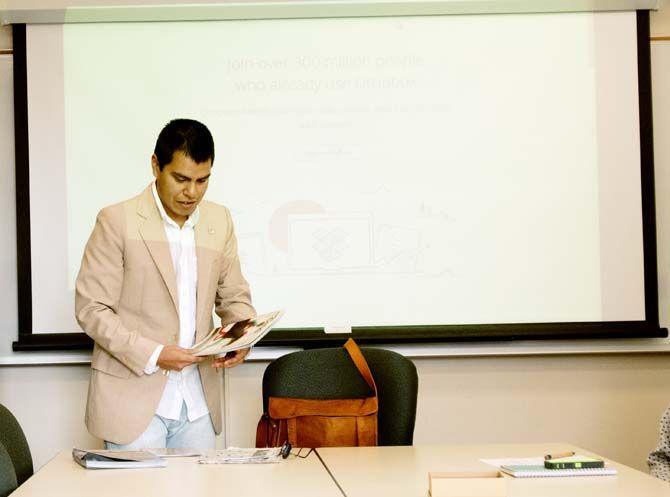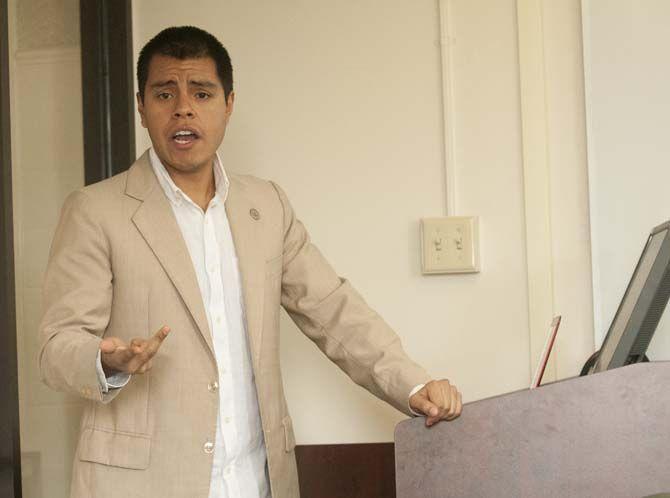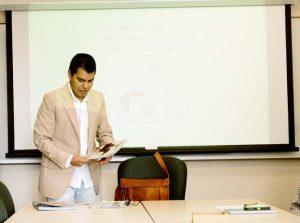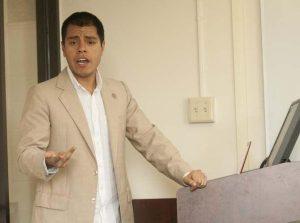Comparative literature doctoral student Guillermo Severiche did nothing but watch movies for nearly two weeks as part of his research.
Severiche went to the 36th International Festival of New Latin American Cinema in Havana, Cuba, in December. On March 6, he led a roundtable discussion with the University’s Department of Foreign Languages and Literature, telling students about how he funded his research trip and what it was like to be in Cuba.
Severiche traveled to Cuba for his dissertation because he studies gender, the body and economics in literature and film from Argentina, Ireland and Cuba.
“I wanted to go to Cuba because I have studied in Ireland already and I am from Argentina, and the film festival in Havana is the biggest in Latin America,” Severiche said.
Severiche earned his bachelor’s degree from Universidad Nacional de Cuyo in Mendoza, Argentina. He came to the University in 2012, where he’s taught and performed research since.
Prior to going to the film festival, Severiche, one of 18 doctoral candidates in his field, had to apply for a fellowship to cover the cost of getting to the festival and staying for two weeks.
“I first had to present a proposal of the trip and what I would do there and demonstrate how it applied to my dissertation,” Severiche said. “Then I had to wait for approval.”
When Severiche got to Cuba, he was shocked by how much the people living there participated in the film festival.
“People would line up outside where the films were shown,” Severiche said. “They would talk during the movie and at the movie and after the movie about the film and whether they liked it or not. There was a lot of participation.”
Severiche said he would watch five or six films a day throughout the festival, going through the festival’s programs and selecting films he thought best suited his dissertation. He took notes about each film he watched for research.
Each year, the festival has competitions in fiction, documentary, animation and other genres, as well as showing films from outside Latin America. Severiche’s favorite film, “La Pared de las Palabras,” or “The Wall of Words,” received honorable mentions in the competition.
The film demonstrated his studies, Severiche said, as it was about a man with dystonia, a disease preventing him from communicating orally or with body language. The film showed his life with his family in and out of medical institutions behind a “wall of words.”
Severiche said the film showed how important the body is to communication, and unlike many independent films, it presented both a problem and a solution. He said many films he watched there presented a problem in someone’s life or society but did not offer any hope.
Some of the other films Severiche watched applied to his studies because of gender issues, such as “Vestido de Novio,” wor “Groom’s Dress,” a film about a happily married couple whose values are tested because of the husband’s gender identity.
“So many of the films showed how the body and gender play into the discussion of people and art,” Severiche said. “It was really cool because many of the actors and directors were at the festival, and I have been in email communication with the director of ‘La Pared de las Palabras.’”
Severiche said he will continue to work on his dissertation and use what he learned at the film festival in Cuba.
Grad student attends film festival in Cuba for research
March 8, 2015
LSU PhD on comparative literature student Guillermo Severiche explains his research done in Havana film festival in Cuba on Friday, March 6, 2015, at Hodges Hall.








